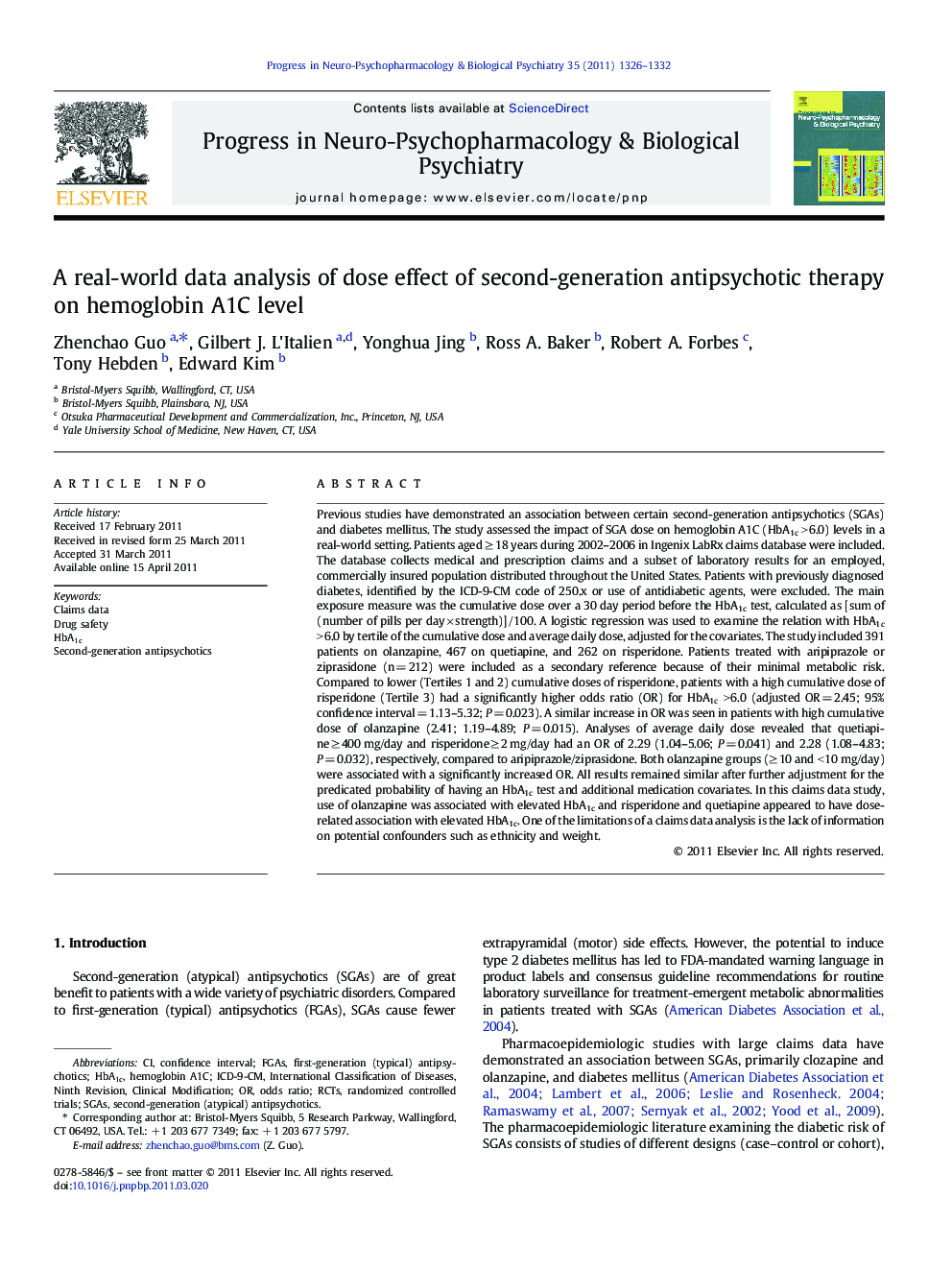| Article ID | Journal | Published Year | Pages | File Type |
|---|---|---|---|---|
| 5845115 | Progress in Neuro-Psychopharmacology and Biological Psychiatry | 2011 | 7 Pages |
Previous studies have demonstrated an association between certain second-generation antipsychotics (SGAs) and diabetes mellitus. The study assessed the impact of SGA dose on hemoglobin A1C (HbA1c > 6.0) levels in a real-world setting. Patients aged â¥Â 18 years during 2002-2006 in Ingenix LabRx claims database were included. The database collects medical and prescription claims and a subset of laboratory results for an employed, commercially insured population distributed throughout the United States. Patients with previously diagnosed diabetes, identified by the ICD-9-CM code of 250.x or use of antidiabetic agents, were excluded. The main exposure measure was the cumulative dose over a 30 day period before the HbA1c test, calculated as [sum of (number of pills per day Ã strength)] / 100. A logistic regression was used to examine the relation with HbA1c > 6.0 by tertile of the cumulative dose and average daily dose, adjusted for the covariates. The study included 391 patients on olanzapine, 467 on quetiapine, and 262 on risperidone. Patients treated with aripiprazole or ziprasidone (n = 212) were included as a secondary reference because of their minimal metabolic risk. Compared to lower (Tertiles 1 and 2) cumulative doses of risperidone, patients with a high cumulative dose of risperidone (Tertile 3) had a significantly higher odds ratio (OR) for HbA1c > 6.0 (adjusted OR = 2.45; 95% confidence interval = 1.13-5.32; P = 0.023). A similar increase in OR was seen in patients with high cumulative dose of olanzapine (2.41; 1.19-4.89; P = 0.015). Analyses of average daily dose revealed that quetiapine â¥Â 400 mg/day and risperidone â¥Â 2 mg/day had an OR of 2.29 (1.04-5.06; P = 0.041) and 2.28 (1.08-4.83; P = 0.032), respectively, compared to aripiprazole/ziprasidone. Both olanzapine groups (â¥Â 10 and < 10 mg/day) were associated with a significantly increased OR. All results remained similar after further adjustment for the predicated probability of having an HbA1c test and additional medication covariates. In this claims data study, use of olanzapine was associated with elevated HbA1c and risperidone and quetiapine appeared to have dose-related association with elevated HbA1c. One of the limitations of a claims data analysis is the lack of information on potential confounders such as ethnicity and weight.
Research highlights⺠A claims data analysis assessed impact of second-generation antipsychotics on HbA1c. ⺠Use of olanzapine was associated with elevated HbA1c (> 6.0). ⺠Risperidone and quetiapine appeared to have dose-related association with HbA1c.
